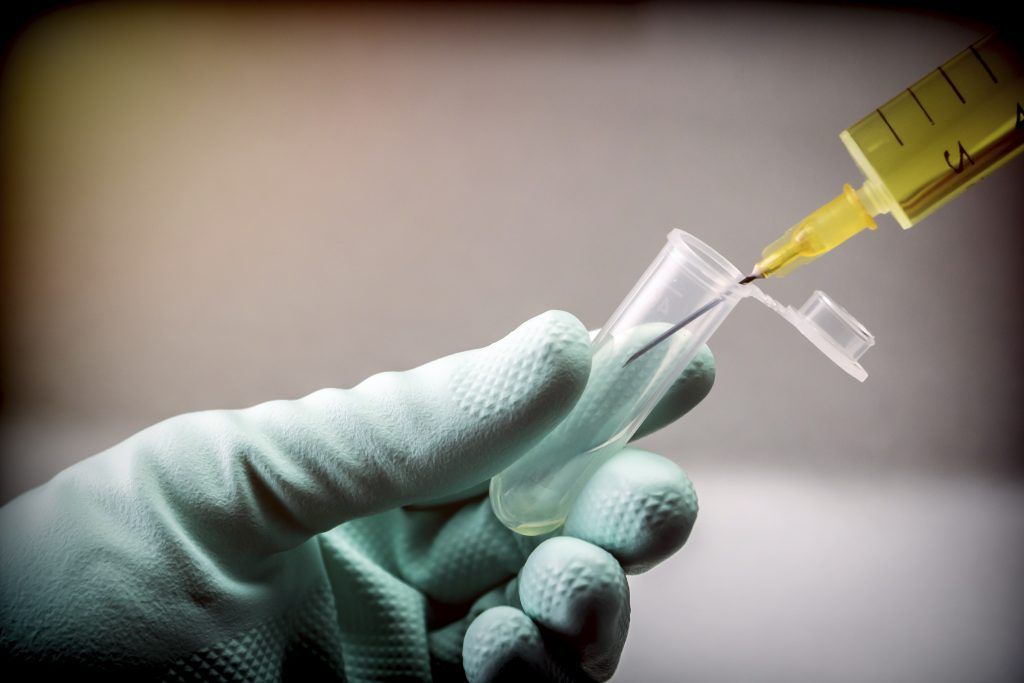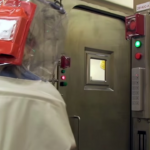Can Bill Gates rescue the Bioweapons Convention?
By Paul F. Walker, Gregory D. Koblentz | April 3, 2017

Global efforts to combat bioterrorism and strengthen international health security face a major crisis: The 1972 Biological Weapons Convention is in dire financial straits.
The convention provides the foundation for international efforts to prevent states and terrorists from acquiring bioweapons. It is the world’s only forum for governments, academics, scientists, nongovernmental organizations, and the private sector to develop strategies for preventing and responding to the threat of bioweapons. But due to the funding crisis, the convention’s ability to continue in that role is in serious jeopardy. Meanwhile, as the recent use of chemical weapons by North Korea, Syria, and the Islamic State demonstrates, dictators and terrorist groups remain interested in unconventional weapons.
The need for international cooperation on bioweapons is greater than ever. But a shocking number of treaty members have not been paying their fair share of the budget, leaving the treaty almost $400,000 in debt. Brazil in particular has been delinquent. It has hardly paid anything over the last decade and it accounts for nearly three-quarters of the total outstanding amount. On March 21, the three official depositaries of the convention—Russia, the United Kingdom, and the United States—issued an unusual joint letter to the treaty’s members, warning that the funding crisis threatened two devastating effects: a shutdown of the treaty’s implementation body and the cancellation of a key meeting on the convention’s future, scheduled for December.
Here’s the good news: One individual alive today has the means, and potentially the inclination, to redress the convention’s immediate funding crisis. This individual, through a charitable foundation, has already poured tens of billions of dollars into global health. He has also warned that bioterrorism could kill 30 million people in less than a year. This individual, of course, is the world’s richest man and its most generous philanthropist, Bill Gates.
What’s at risk. The first potential casualty of the funding crisis is the convention’s already modest capacity for implementation. Unlike the Nuclear Non-Proliferation Treaty and the Chemical Weapons Convention, which operate with the support of large international organizations, the Biological Weapons Convention relies on just a tiny organization to collect annual confidence-building and compliance reports; organize annual meetings; conduct public outreach; and promote universalization of the treaty. This organization—the Geneva-based Implementation Support Unit (ISU)—operates on a shoestring budget of roughly $1.4 million a year. The contracts of its three staffers are set to expire by the end of April. If these dedicated individuals are not retained, the convention will lose institutional memory regarding both the treaty itself and the treaty’s successes in building an international network to tackle issues at the nexus of health, science, and security.
The second potential impact of the budget crunch is the cancellation of a meeting, scheduled for December, that is intended to overcome the political gridlock that led to a meltdown at the convention’s review conference last November. The review conference ended ignominiously—Iran blocked consensus on a reasonable agenda of new activities that would have countered bioterrorism and strengthened global health security over the next four years. The meeting this December is the treaty members’ only chance to establish a new round of cooperative activities until the next review conference in 2021. Given the rate at which biotechnology is advancing, four years is too long to wait.
The solution? Just weeks before Russia, the United Kingdom, and the United States issued their unprecedented letter, Bill Gates had warned at the Munich Security Conference that an outbreak of manmade or natural disease could kill 30 million people and cost the global economy more than $500 billion. “Imagine if I told you,” Gates said, “that somewhere in this world, there’s a weapon that exists—or that could emerge—capable of killing tens of thousands, or millions, of people, bringing economies to a standstill, and throwing nations into chaos. You would say that we need to do everything possible to gather intelligence and develop effective countermeasures to reduce the threat. That is the situation we face today with biological threats.”
Gates, ever the businessman, pointed out that this dire outcome could be avoided by spending an estimated $3.4 billion a year on pandemic preparedness. To his great credit, Gates and his foundation have already contributed vast sums to global health. Most recently, the Bill and Melinda Gates Foundation provided $100 million to help launch a public-private initiative called the Coalition for Epidemic Preparedness Innovations, with the goal of accelerating the development of new vaccines. More active engagement by civil society and high-level political attention from governments—of which this new coalition is only the latest example—have contributed to major advances in global health in recent years.
While global health has experienced a renaissance, the international effort to combat bioweapons has fallen far behind. Global efforts to combat bioterrorism need an infusion of the same resources, fresh ideas, and new approaches that the Gates Foundation has brought to global health. Even a modest investment by the Gates Foundation—which provided $1.2 billion in 2015 alone to global health efforts—could allow the ISU not only to weather its current financial crisis but to dramatically increase its activities across the board. With increased funding the ISU could conduct more robust outreach to the scientific community and private sector, help more states improve their capacity to implement the treaty, and more closely monitor emerging biotechnologies that might be used to make biological weapons. The publicity generated by a donation from the Gates Foundation would also bring much-needed attention to the treaty and might galvanize embarrassed members to pay their debts.
The global health community has achieved great gains over the decades, but a single bioweapon attack could reverse all that. Now more than ever, an ounce of prevention is worth a pound of cure.
Together, we make the world safer.
The Bulletin elevates expert voices above the noise. But as an independent nonprofit organization, our operations depend on the support of readers like you. Help us continue to deliver quality journalism that holds leaders accountable. Your support of our work at any level is important. In return, we promise our coverage will be understandable, influential, vigilant, solution-oriented, and fair-minded. Together we can make a difference.
Topics: Biosecurity, Opinion















